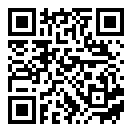Pages:
7-20
Receive Date: 2026/02/07
Accept Date: 2026/02/07
Abstract:
There are some similarities and differences between the stories variously narrated in the Quran and Torah. Discovering and investigating the differences between Quranic quotes and the differences between Quranic quotes and Torah quotes plays an important role in presenting a correct interpretation of these verses. The story of Abraham's guests is mentioned four times in the Qur'an and once in the Torah with some differences (such as whether the news of Isaac’s birth is prior to the news of the torment of Lot's people or vise versa, who is the audience of Isaac’s bisharah (good news), Sara's real reaction to this good news, and the reason for the fear of Hazrat Ibrahim). The Torah is in agreement with the Qur'an in some parts and contradicts in others in this topic. The Torah connotes matters such as undermining the infallibility and monotheism of the prophet and other important characters and denigrating the essence of God in its narration, as is the case in other Torah stories. Unlike the Torah, the Qur'an has outlined and explained the main story in various surahs, presenting the essence of the story, while having seemingly conflicting differences in those narrations. Comparing the Qur'an and the Torah and the interpretation of Qur’an’s story in the four surahs in this research, and listing the differences and similarities between the Qur'an and the Torah’s narration, I have presented and explained the interpretation of Qur'an’s differences in this story in the four surahs.
چکیده و کلیدواژه فارسی (Persian)
Title :بررسی تطبیقی ماجرای مهمانان حضرت ابراهیم در قرآن و تورات
Abstract:
برخی داستانها در مواضع متعدد با شباهتها و تفاوتهایی در قرآن و تورات نقل شدهاند. کشف و بررسی تفاوتهای نقلهای قرآن با یکدیگر و نیز تفاوت نقل قرآن با نقل تورات در ارائه تفسیر صحیح از آیات نقش مهمی دارد. ماجرای مهمانان حضرت ابراهیم چهار بار در قرآن و یک بار در تورات با اختلافاتی (همچون مبهم بودن تقدم و تأخر در بشارت تولد حضرت اسحاق یا خبر عذاب قوم لوط، تعیین مخاطب در بشارت حضرت اسحاق، تبیین واکنش حقیقی ساره در برابر این بشارت، و علت ترس حضرت ابراهیم) ذکر شده است. در اینباره تورات در بخشهایی با قرآن همسو و در جهاتی متعارض است. تورات ـ مانند همیشه ـ در نقل داستان، با ارائه مضامینی همچون خدشهدار کردن عصمت و توحید انبیا و شخصیتهای مهم و تنقیص ذات خداوند، ماجرا را شرح داده است. قرآن برخلاف تورات با مطرح نمودن اصل ماجرا و شرح آن در سور گوناگون، ضمن داشتن اختلافاتی بهظاهر متعارض در آن سور، حقیقت این ماجرا را بهخوبی ترسیم کرده است. این پژوهش با بررسی تطبیقی قرآن و تورات و تفسیر داستان قرآن در چهار سوره، ضمن برشمردن اختلافات و تشابهات میان قرآن و تورات، به تبیین و ارائه تفسیر در باب اختلافات قرآنی در چهار سوره مذکور درباره این داستان پرداخته است.
References:
- قرآن کریم.
- کتاب مقدس، 2016م، لندن.
- آلوسى، محمودبن عبدالله، 1415ق، روح المعانی فی تفسیر القرآن العظیم و السبع المثانی، بیروت، دار الکتب العلمیة.
- ابن ابیحاتم، عبدالرحمنبن محمد، 1419ق، تفسیر القرآن العظیم، ریاض، مکتبة نزار مصطفی الباز.
- ابندرید، محمدبن حسن، 1407ق، جمهرة اللغة، بیروت، دارالعلم للملایین.
- ابنعاشور، محمدطاهر، 1420ق، تفسیرالتحریر و التنویر، بیروت، مؤسسة التاریخ العربی.
- ابنفارس، احمدبن زکریا، 1404ق، معجم مقاییس اللغة، تصحیح محمدهارون عبدالسلام، قم، مکتب الاعلام الاسلامی.
- ابنمنظور، محمدبن مکرم، 1414ق، لسان العرب، ط. الثالثه، بیروت، دار صادر.
- ازهری، محمدبن احمد، 1421ق، تهذیب اللغة، بیروت، دار احیاء التراث العربی.
- ثعلبى، احمدبن محمد، 1422ق، الکشف و البیان، بیروت، دار احیاء التراث العربی.
- حسینی فاطمی، سیدعلی، 1386، «جغرافیای تاریخی داستان حضرت لوط»، تاریخ در آیینه پژوهش، ش 13، ص 67-86.
- زمخشرى، محمودبن عمر، 1407ق، الکشاف عن حقائق غوامض التنزیل و عیون الأقاویل فى وجوه التأویل، بیروت، دار الکتاب العربی.
- سید قطب، 1412ق، فی ظلال القرآن، بیروت، دارالشروق.
- صادقى تهرانى، محمد، 1406ق، الفرقان فى تفسیر القرآن بالقرآن و السنه، قم، فرهنگ اسلامى.
- طباطبائی، سیدمحمدحسین، 1374، تفسیر المیزان، ترجمة سیدمحمدباقر موسوی همدانی، قم، جامعة مدرسین.
- عسکری، ابوهلال، بیتا، معجم الفروق اللغویة، تحقیق محمدابراهیم سلیم، قاهره، دار العلم.
- فرامرزی، جواد و میثم خلیلی، 1397، «تحلیل ساختار داستان ضیف ابراهیم و قوم لوط در رکوع هفتم سوره هود»، پژوهشنامه معارف قرآنی، ش 32، ص 77-103.
- فراهیدى، خلیلبن احمد، 1409ق، کتاب العین، تحقیق مهدی مخزومی، بیروت، دار و مکتبة الهلال.
- فضلالله، محمدحسین، 1419ق، من وحی القرآن، بیروت، دار الملاک.
Cite this article:
RIS
Mendeley
BibTeX
APA
MLA
HARVARD
VANCOUVER
APA | MLA | HARVARD | VANCOUVER
narimani, Zohreh.(2026) A Comparative Study of the Story of Hazrat Ibrahim's Guests in the Holy Quran and Torah. Ma`rifat-e Adyan, 15(1), 7-20 https://doi.org/10.22034/marefateadyan.2024.2020986
APA | MLA | HARVARD | VANCOUVER
Zohreh narimani."A Comparative Study of the Story of Hazrat Ibrahim's Guests in the Holy Quran and Torah". Ma`rifat-e Adyan, 15, 1, 2026, 7-20
APA | MLA | HARVARD | VANCOUVER
narimani, Z.(2026) 'A Comparative Study of the Story of Hazrat Ibrahim's Guests in the Holy Quran and Torah', Ma`rifat-e Adyan, 15(1), pp. 7-20
APA | MLA | HARVARD | VANCOUVER
narimani, Z. A Comparative Study of the Story of Hazrat Ibrahim's Guests in the Holy Quran and Torah. Ma`rifat-e Adyan, 2026; 15(1): 7-20
 / Assistant Professor of the Department of Quranic Sciences and Interpretation, University of Quranic Sciences and Education / narimani@quran.ac.ir
/ Assistant Professor of the Department of Quranic Sciences and Interpretation, University of Quranic Sciences and Education / narimani@quran.ac.ir



